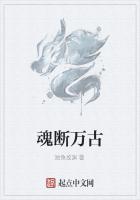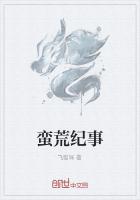Without hands a man might have feet, and could still walk: but, consider it,--without morality, intellect were impossible for him; a thoroughly immoral _man_ could not know anything at all! To know a thing, what we can call knowing, a man must first _love_ the thing, sympathize with it: that is, be _virtuously_ related to it. If he have not the justice to put down his own selfishness at every turn, the courage to stand by the dangerous-true at every turn, how shall he know? His virtues, all of them, will lie recorded in his knowledge. Nature, with her truth, remains to the bad, to the selfish and the pusillanimous forever a sealed book: what such can know of Nature is mean, superficial, small; for the uses of the day merely.--But does not the very Fox know something of Nature? Exactly so:
it knows where the geese lodge! The human Reynard, very frequent everywhere in the world, what more does he know but this and the like of this? Nay, it should be considered too, that if the Fox had not a certain vulpine _morality_, he could not even know where the geese were, or get at the geese! If he spent his time in splenetic atrabiliar reflections on his own misery, his ill usage by Nature, Fortune and other Foxes, and so forth;and had not courage, promptitude, practicality, and other suitable vulpine gifts and graces, he would catch no geese. We may say of the Fox too, that his morality and insight are of the same dimensions; different faces of the same internal unity of vulpine life!--These things are worth stating; for the contrary of them acts with manifold very baleful perversion, in this time: what limitations, modifications they require, your own candor will supply.
If I say, therefore, that Shakspeare is the greatest of Intellects, I have said all concerning him. But there is more in Shakspeare's intellect than we have yet seen. It is what I call an unconscious intellect; there is more virtue in it than he himself is aware of. Novalis beautifully remarks of him, that those Dramas of his are Products of Nature too, deep as Nature herself. I find a great truth in this saying. Shakspeare's Art is not Artifice; the noblest worth of it is not there by plan or precontrivance.
It grows up from the deeps of Nature, through this noble sincere soul, who is a voice of Nature. The latest generations of men will find new meanings in Shakspeare, new elucidations of their own human being; "new harmonies with the infinite structure of the Universe; concurrences with later ideas, affinities with the higher powers and senses of man." This well deserves meditating. It is Nature's highest reward to a true ****** great soul, that he get thus to be _a part of herself_. Such a man's works, whatsoever he with utmost conscious exertion and forethought shall accomplish, grow up withal unconsciously, from the unknown deeps in him;--as the oak-tree grows from the Earth's bosom, as the mountains and waters shape themselves; with a symmetry grounded on Nature's own laws, conformable to all Truth whatsoever. How much in Shakspeare lies hid; his sorrows, his silent struggles known to himself; much that was not known at all, not speakable at all: like _roots_, like sap and forces working underground! Speech is great; but Silence is greater.
Withal the joyful tranquillity of this man is notable. I will not blame Dante for his misery: it is as battle without victory; but true battle,--the first, indispensable thing. Yet I call Shakspeare greater than Dante, in that he fought truly, and did conquer. Doubt it not, he had his own sorrows: those _Sonnets_ of his will even testify expressly in what deep waters he had waded, and swum struggling for his life;--as what man like him ever failed to have to do? It seems to me a heedless notion, our common one, that he sat like a bird on the bough; and sang forth, free and off-hand, never knowing the troubles of other men. Not so; with no man is it so. How could a man travel forward from rustic deer-poaching to such tragedy-writing, and not fall in with sorrows by the way? Or, still better, how could a man delineate a Hamlet, a Coriolanus, a Macbeth, so many suffering heroic hearts, if his own heroic heart had never suffered?--And now, in contrast with all this, observe his mirthfulness, his genuine overflowing love of laughter! You would say, in no point does he _exaggerate_ but only in laughter. Fiery objurgations, words that pierce and burn, are to be found in Shakspeare; yet he is always in measure here; never what Johnson would remark as a specially "good hater." But his laughter seems to pour from him in floods; he heaps all manner of ridiculous nicknames on the butt he is bantering, tumbles and tosses him in all sorts of horse-play; you would say, with his whole heart laughs. And then, if not always the finest, it is always a genial laughter. Not at mere weakness, at misery or poverty; never. No man who _can_ laugh, what we call laughing, will laugh at these things. It is some poor character only _desiring_ to laugh, and have the credit of wit, that does so.
Laughter means sympathy; good laughter is not "the crackling of thorns under the pot." Even at stupidity and pretension this Shakspeare does not laugh otherwise than genially. Dogberry and Verges tickle our very hearts;and we dismiss them covered with explosions of laughter: but we like the poor fellows only the better for our laughing; and hope they will get on well there, and continue Presidents of the City-watch. Such laughter, like sunshine on the deep sea, is very beautiful to me.
We have no room to speak of Shakspeare's individual works; though perhaps there is much still waiting to be said on that head. Had we, for instance, all his plays reviewed as _Hamlet_, in _Wilhelm Meister_, is! A thing which might, one day, be done. August Wilhelm Schlegel has a remark on his Historical Plays, _Henry Fifth_ and the others, which is worth remembering.














